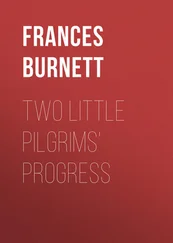He rattled down the steps, to let Enid know that he was coming — and coming cheerfully — paused at the entrance to the cluttered little studio living room, looked in. The last of the autumn sunlight slanted across the unfinished picture which stood on the easel — the colors jumped out awry, glowed, he felt himself flowing into that shape of ruin, that shape of an old barn on a tangled hill, amongst wild grass, wild lilacs, wild apple trees — but at once the current reversed itself, flowed back on itself, for once more it was unmistakably a failure — a dud, a flop. Impotence, impotence — the hand powerless to shape the actual, the vision powerless to purify its own shafts of light — what was the trouble, what the devil was it? Deep and perhaps inoperable as a cancer, the fine roots untraceably spread and wound in the unconscious, in his whole life — it was perhaps the life itself which was all wrong, wrongly rooted — what was needed was a giant sponge, a new start. But where? Not here. Not with this hall stove which must soon be laid and lit, the coals fetched in from the woodshed in the garden, the ashes dumped on the rain-gutted road that led down to the Town Landing — and yet, why not? Why not indeed! This was rich, real, rank — as rank as the snarled nasturtiums on the river wall at the foot of the garden, as rank as marsh and seaweed, the crawling mudflats at low tide, or the winter, which would presently howl its snows and bitter stars about the small wooden houses of the village, freezing the pipes, sending icy drafts up through the cracks between bare floorboards, chilling the rooms with white light through frosted windows. Real enough, Christ, yes! And as real too as the sound of running water which now came from the kitchen sink.
In the dining room, two silver candlesticks on the table, which had not been set, and Buzzer’s porringer on her own little white table under the window — he picked it up, for it would be an ambassador for him, and went down the two steps into the kitchen lean-to.
“Here’s these,” he said.
“Well, put them down!”
Dark curls turning on the pink smock, the small stubborn head half turning, the liquid green eyes — lovely! — flashing toward and past him, but on a level lower than his own, not meeting his, lowering again to the bright collander in which she was shaking potatoes. The potatoes were very important; she was humming to herself, preoccupied, a cloud of steam rose softly from the kettle on the stove.
“All bathed and abed,” he said, “and went like a lamb.”
“Did you give her a quilt? It’s going to be cold.”
“No, I didn’t think of it.”
“Never mind, then, I’ll do it myself.”
“I thought I’d go for the mail.”
“It couldn’t possibly wait till after supper, I suppose.”
“My dear Ee, you know it would be closed.”
“And is there any such important mail that it can’t wait till morning?”
“Just the same, I think I’ll go, if you don’t mind.…”
She made no answer as he let himself out through the garden door. The screen clacked behind him, he walked slowly around the back of the house, and looked down over the sloping lawn towards the river and the Town Landing. Mr. Riley, on the cabin roof of the blue motorboat, was in the act of stepping across, rubber-booted, to the rotten piles of the wharf — tomorrow there would be scallops — and a car could be heard kicking up the loose boards of the bridge, rumbling and rattling as it came, then accelerating swiftly as it shot up the sandy road past the Bank, scattering dead leaves lavishly to left and right.
Leaves everywhere — the road that led to the Town Landing was ankle-deep with them, they lay in loose golden drifts on the field where Mr. Riley’s nets were spread out to dry, from the tall poplars even now they floated down in lazy parallel chains and curves, they clung about the fading stalks of the chicory, whose last blue flowers glowed like pale stars. Another night, another frost, and the trees would be bare — summer was over. Tirra-loo-tirra-lee! “Shadows rising on you and me”—shadows rising was good, one could imagine the shadows rising like water, like a tide, like these full-moon tides. Coming up about one’s feet, climbing, deepening — but it was no joke, it was all too true! No letter from Nora, not a word in two weeks, and this on top of her refusal — unwillingness? inability? — to see him last time, and the time before that the unfortunate meeting at the hotel in Boston, and now, as if that wasn’t enough, this damned Jim Connor business, and Enid—
Mr. Murphy, getting out of his Ford, just back from the evening train with the mails, waved from his yard, and on the piazza of the Murphy boarding house the old loony was sitting, Miss Schermerhorn, rocking herself intently in a rocking chair, her eyes fixed brightly on the road. She beckoned to him, leaned forward, said mysteriously:
“Did you hear anything, mister?”
“No?”
“It’s the water running, the water running in the cellar, they forgot to turn it off!”
“Oh!”
“Yes, they’d ought to be told, they went away and left it running!”
“Very well, I’ll tell them.”
She looked unconvinced, but also as if it didn’t much matter, and resumed her rocking. What a village! Every other person cracked or feeble-minded — gone to seed. Dear old Mrs. Chandler, the seamstress, stopping everybody in the streets — of course, it was the only trace of anything wrong with her, otherwise she was perfectly normal — to talk about underclothes, and apropos of absolutely nothing. The weather, the news, the children, the yacht races, the taxes, the church supper — and then suddenly the vital, the burning, question, toward which she had been cunningly working all the time, the dark and precious secret. Yes, I like silk, I like silk, but then don’t you think there is something really nicer, really cleaner, about linen? I change sometimes nine or ten times a day! And Mrs. Kimpton, the washerwoman, with her obscure passion for corsets! Always poking about in the town dump for new specimens — no matter in what state of dilapidation — going there day after day — and then putting them up all round her living-room, as one might put flowers, or pictures! What the devil was that all about? A mystery, as Buzzer had said, a mystery, a mystery! But no stranger, perhaps, than wanting to paint.
Two men were standing outside the post-office door, talking, and when he went into the post office, now empty, and peered into Box 67 in the slant light, that too was empty. Nothing. Not a word, not a scrap — nothing. He turned, walked out slowly, paused on the little triangular corner of gravel outside, looked unseeing to left and right.
“When was that, that it became that amount?”
“Just before I went into the hospital.”
“And what did you do, did you tell her about it before you went into the hospital?”
“Sure I did. What do you take me for!”
“Well, I don’t understand it, and that’s a fact.”
He crossed the street, took the long way around the block, scuffed the dead leaves with dusty shoes. Empty again. Empty! But it was himself who felt empty: a slow and hollow pang, a queer mixture of guilt and suffering. But why feel guilty now , if — as it appeared — she had decided to end the affair, to drop him? It didn’t make sense. Understandable enough that he should feel ashamed when he got a letter, to read it and carry it about in secret, or burn it slyly in the fireplace — but why now , when perhaps the whole delicious exciting thing might be over, and his integrity (willy-nilly) restored? Of course, he had seen it coming — it had begun when he moved to the country, and couldn’t see her so often, or thought he couldn’t. She hadn’t reproached him, but just the same you couldn’t blame her! Thought he couldn’t! Ah! of course! The truth was that he could have seen her, and even oftener, if he had then really wanted to; but that he himself had definitely not felt like it. Yes. He had been a little bored, a little depressed, by the continuous necessity for secrecy and furtiveness, had simply wanted a rest. And Nora had seen through it.
Читать дальше












